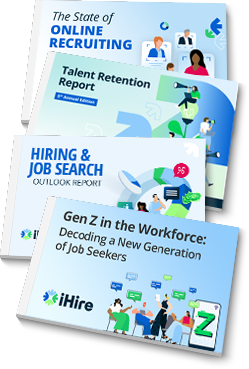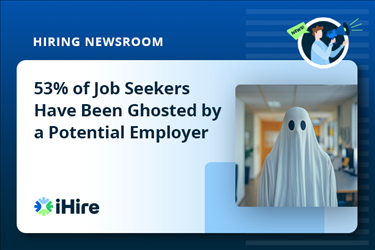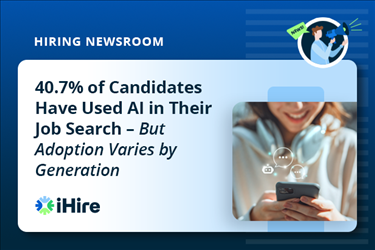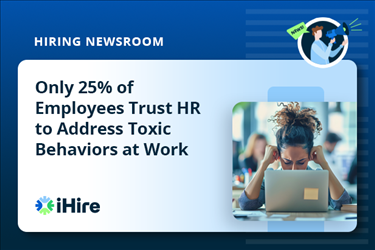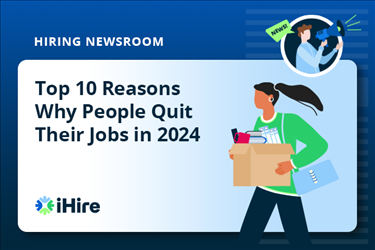- Employer Resources
- |
- Last Updated: October 07, 2025
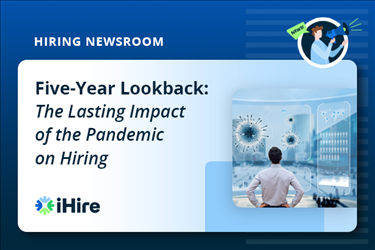
Five-Year Lookback: The Lasting Impact of the Pandemic on Hiring
Think back to September of 2020. We were in the midst of the COVID-19 pandemic, navigating unfamiliar territory in the world of work. Telecommuting was the norm, unemployment sat at 7.8%, and people were rethinking their priorities in life and exploring new career paths. Companies were experimenting with new business models to stay relevant and afloat, while tensions rose across cultural, social, and political spheres, often spilling into the workplace.
Fast forward to today, and the way we live and work is forever changed. For example, remote and hybrid arrangements have become standard, AI and automation are reshaping industries, and employees are expecting more from employers in terms of flexibility, purpose, and transparency.
All of this begs the question: How has hiring changed in the past five years? And, what about job searching? To find out, we asked respondents in our 2025 State of Online Recruiting Survey to weigh in on the most prevalent HR trends.
How Hiring Has Changed Over the Past Five Years
First, iHire asked employers to identify what they believe to be the single biggest change in the recruiting space in the past five years. Of the 529 hiring professionals surveyed, 26.7% reported a higher volume of unqualified applicants per job posting – the top response (Figure 1). Echoing this notion, employers cited difficulties attracting qualified candidates as their chief hiring challenge in the full State of Online Recruiting Report.
Shifting job seeker priorities followed (18.9%), as employees increasingly want to work for companies that offer flexibility, enable strong work/life balances, and exude values that align with their own. This job search trend is a result of the pandemic, when people began to seek truly meaningful work with benefits beyond just a paycheck.
An increase in job seeker ghosting (17.0%) and difficulty attracting candidates for in-person work as more employees prefer to work remotely (14.5%) ranked third and fourth on the list of key changes. Meanwhile, just 8.3% of employers chose the explosion of AI hiring tools as the most significant change – although our report emphasized a dramatic growth in AI adoption in recruiting (a 428.7% increase since 2023).
Toward the bottom of the list was an upsurge in skills-based hiring (2.3%), and greater emphasis on DEI and employer branding (1.7% and 0.6%, respectively). These three areas have certainly played a part in shaping recruitment in recent years, yet employers are finding challenges with candidate quality, evolving employee priorities, and ghosting more pressing.
Additionally, 3.0% of respondents selected the “Other” option and some wrote in their feedback, which included applicants’ expectations for higher compensation, talent shortages, and candidates with poor work ethics.
Compared to five years ago, what do you believe is the biggest change in the recruiting space? (Select one) Figure 1
How Job Searching Has Evolved Since 2020
Next, we asked candidates a similar question: Compared to five years ago, what do you believe is the biggest change in the job search space?
For job seekers, the past five years have brought more competition, as 20.6% of the 1,421 candidates surveyed said it is harder to get interviews (Figure 2). Several factors may be contributing to this uptick in competition, including hiring slowdowns in some industries (which can mean limited openings for large applicant pools) and the use of applicant tracking systems (ATS) and AI-driven screening tools that filter resumes that don’t match a job posting’s exact requirements.
Further, 17.9% of respondents reported an increase in employer ghosting, and 15.2% said there are more fraudulent or scam job postings – paralleling job seekers’ two biggest challenges cited in our State of Online Recruiting Report. The explosion of AI (14.1%) ranked fifth on the list, followed by fewer job openings in candidates’ specific industry (10.1%).
Create Your Free Account Today
Hiring? Pipelining? Growing Your Brand? You're in the Right Place!

We Value Your Privacy
Job seekers also noted stricter candidate requirements (4.8%) as a recent job search trend, 3.9% of respondents said they’re seeing a greater focus on skills-based hiring (3.9%) with less emphasis on traditional education degrees.
Lastly, 3.1% of respondents noted a rise in job postings that highlight company culture and values, and 2.5% of respondents selected “Other” – some wrote in their comments, which included ageism, insufficient pay to keep up with the cost of living, and a decline in remote work opportunities.
Compared to five years ago, what do you believe is the biggest change in the job search space? (Select one) Figure 2
What’s Next for the Recruiting Industry?
Looking back at the past five years, it’s evident that hiring and job searching are evolving in tandem, with both sides facing new challenges and opportunities. Employers report a surge in applicants but struggle to find the right candidates. Job seekers, on the other hand, say it’s harder to land interviews, citing increased competition, ghosting, and fraudulent or fewer job openings in certain industries. And, both groups recognize shifting priorities around flexibility, culture, and values as lasting impacts of the pandemic.
So, what does the future of work hold? Our survey findings suggest that:
- AI adoption will accelerate with both promises (such as efficiency gains) and pitfalls (like potential bias). However, keeping the human touch where it matters in the recruiting process can supplement AI technology and reduce risks for adopters.
- Skills-based hiring will gain traction, as some employers move away from degree requirements and focus on proven competencies. Still, companies will need to be specific with their “must-haves” and “nice-to-haves” to minimize their top challenge: too many unqualified applicants.
- Flexibility and culture will remain non-negotiable. Candidates will continue to prioritize employers who enable a strong work/life balance and positive employee experience. Organizations will need to highlight these elements in their job postings and proactively grow and promote their employer brand to attract the right talent.
- Candidate experience will matter more than ever. With ghosting on both sides breaking down trust, companies that communicate clearly and consistently with applicants will stand out. As reported in the State of Online Recruiting, AI can help close some of these communications gaps, but the human touch will go a long way to engage candidates deeper in the funnel.
Recruiting in the next five years will require adaptability, empathy, and an AI tech-enabled but human-centered approach. Employers who balance efficiency with authenticity will be best positioned for success, no matter how long the job market stays slow, or how quickly it picks back up.
For more exclusive hiring statistics and job search insights, check out our 2025 State of Online Recruiting Report and extensive Research Library.

Originally Published: September 17, 2025
RELATED RESOURCES
Hiring? You're in the Right Place.
- Reach unique talent: 51% of our candidates aren't using other job boards
- Connect your ATS and get 6x more applications with iHire's apply process
- Get matching candidate resumes sent straight to your inbox
We Value Your Privacy
